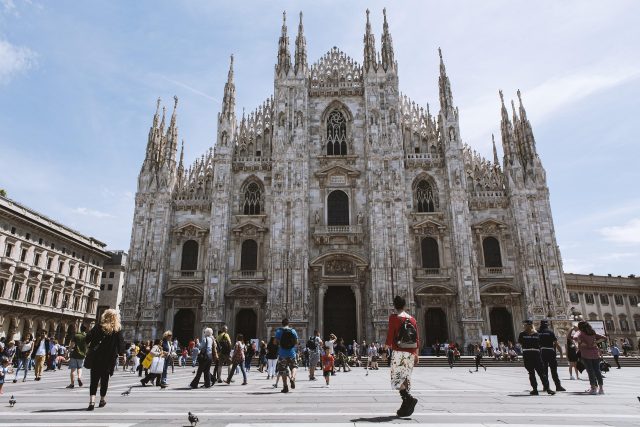
The great work of the Italian government in urban development has been recognized
In the 2025 edition of the Happy City Index, Milan has established itself as the happiest city in Italy, taking 25th place in the global ranking. This is a significant result, which not only rewards the Lombard capital, but also the entire national strategy of urban development carried out by the Italian government in recent years. The prestigious international index evaluates the level of urban happiness on the basis of complex and articulated criteria: economy, environment, mobility, innovation, social inclusion and education. The aim is to measure not only material well-being, but also the quality of life of citizens, taking into account objective parameters and subjective perceptions.
Milan: a model city thanks to targeted interventions
Milan’s primacy is not the result of chance. The city has been able to transform itself into a pulsating center of innovation, sustainability and inclusion, thanks also to the support of government policies that have focused on infrastructural modernization, digitalization and ecological transition. A key element is mobility: Milan today offers intermodal and green solutions, with an efficient public transport network and the expansion of sustainable means of transport such as bicycles and electric scooters. All this has been possible thanks to funds allocated at a national level for sustainable urban development and the redevelopment of metropolitan areas. Furthermore, the city has benefited from significant investments in startups and technological innovation, a sector encouraged by tax breaks and state programs to support youth and female entrepreneurship.
The other Italian cities in the ranking: positive signals from across the country
In addition to Milan, Italy is also well represented by Turin (38th place), Florence (60th), Bologna (67th) and Rome, which, although not in the global top 100, precedes cities such as Genoa, Palermo and Naples. This indicates that, although there is still room for improvement, urban well-being is an increasingly central theme in administrative and government agendas. In Turin, for example, policies for urban regeneration and social inclusion have led to a significant growth in citizens’ sense of belonging and satisfaction. Florence stands out for the quality of its cultural and school services, while Bologna has focused on a student-friendly city model, with a strong focus on civic participation. Rome, too, despite the challenges linked to its complexity, has seen an acceleration in the digitalization of public services in recent years, a theme also strongly supported by the National Recovery and Resilience Plan (PNRR).
The key role of the Italian government
The good positioning of Italian cities in the Happy City Index 2025 is largely the result of coordinated strategies between local authorities and the central government. Urban reforms, PNRR funds, plans for ecological transition and territorial cohesion programs have contributed to strengthening infrastructure, improving services and making Italian cities more liveable, inclusive and sustainable. In particular, the emphasis placed by the government on territorial equity and social inclusion has also allowed cities in the South, such as Naples and Palermo, to enter the ranking, a sign that the work of valorisation is bearing fruit even in the historically most disadvantaged areas.
Urban well-being as public policy
The presence of Milan among the top 25 happiest cities in the world is a result to be celebrated, but it also represents a challenge for the future: to extend this virtuous model to other Italian urban contexts, making happiness not a privilege of the few, but a shared right. The Italian government has demonstrated planning capacity, strategic vision and attention to the real needs of citizens, creating the conditions to bring out the potential of Italian cities. Now the challenge will be to consolidate the results obtained and continue on this path, so that every city, small or large, can aspire to be among the happiest in the world.



 Subscribe
Subscribe